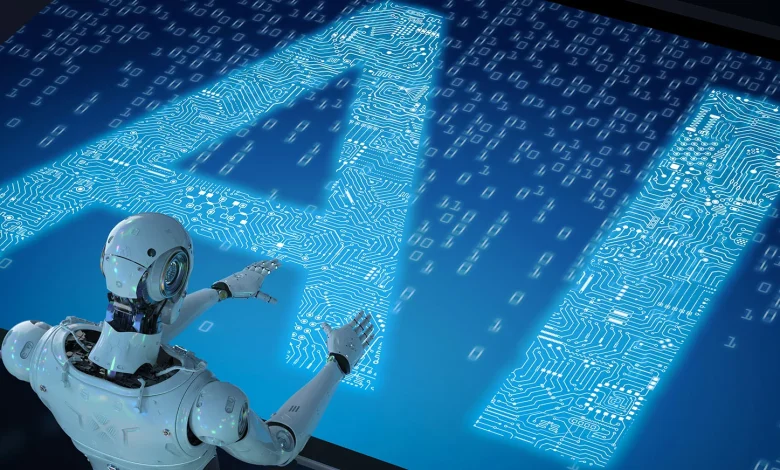The Negative Impact of Artificial Intelligence on Employment

Although artificial intelligence (AI) has benefited society. It has raised the number of unemployed people and exacerbated income polarization by challenging low-skill and job-intensive sectors. To mitigate the negative effects of AI. Strategies such as AI taxation and subsidies, as well as income-supporting programs, can be advocated. Yet, none will function effectively to accomplish social growth over time. Government policies will have zero impact on technological advancement, and capitalism will discover its way to high expansion. Income-supporting programs are unproductive and unsustainable long-term solutions.
The fast growth of AI has heralded an exciting new period of creativity and efficiency. This revolution in technology, still is not without costs, notably when it comes to employment. This paper will investigate the negative implications of AI on employment, such as job displacement, skill deterioration, and economic inequalities. It will also look into possible ways to reduce these detrimental effects.
Job Substitution
Among the most obvious issues related to AI’s integration into the workforce is the possibility of massive loss of employment. Automating tasks, enabled by artificial intelligence-powered systems, is becoming progressively skilled in handling activities that were previously handled only by human workers. In the production industry, for example, robots outfitted with AI algorithms are now starting to displace human labor in activities requiring accuracy and repeatability.
This development is currently resulting in job displacement in several sectors. Workers who used to be in charge of these duties are currently at the chance of being laid off or compelled to undergo retraining for other roles. This displacement can be especially difficult for persons in lower-skilled employment who might lack assets or chances to advance to higher-skilled positions.
Obsolescence of Skill
As AI advances, an evolution in the abilities essential for achievement in the job market must occur. Employment opportunities requiring manual or routine work are gradually being augmented or substituted with jobs requiring skill in AI-related technology. This transition causes skill obsolescence, in which individuals lack the essential skills to succeed in a developing employment market. Also, perfect CV Maker Dubai is among the latest services with a lot of experience and knowledge regarding AI.
Inequality in Socio-Economic Terms
The adverse effect of AI on jobs can’t be spread evenly throughout society. Socioeconomic disparity grows as people have the benefit of assets and higher education can adjust to a dynamic job sector whereas others fall behind. This generates a gulf among those who can capitalize on AI’s prospects as well as those who suffer increased job instability and limited opportunities for advancement.
Furthermore, particular industries and locations have become more vulnerable to job displacement as a result of AI. Manufacturing and transportation industries, which have a greater proportion of regular and physical labor incur severe job losses. Similarly, areas that rely greatly on specific businesses may encounter economic difficulties if these sectors are substantially damaged by technology.
Possible Solutions
- Retraining and Growing Programs: Governments ought to invest in extensive upgrading and retraining programs for employees impacted by automation in conjunction with companies and institutions of learning. These programs should emphasize the development of talents that complement AI technologies, such as analytical thinking, inventiveness, and flexibility.
- While technological abilities are important, greater focus should be placed on developing soft abilities. That is not as likely to be automated. UBI offers an adequate amount of financial assistance, guaranteeing that people can satisfy their fundamental necessities regardless of whether they lose their jobs.
- Partnership among Government, Industry, and Academia: Authorities, industry, and higher learning institutions should collaborate to foresee the evolving labor market and establish training and academic programs that meet the workforce’s increasing demands. This cooperative approach can help workers transfer into fresh, AI-enhanced professions more smoothly.
Conclusion
Although the incorporation of computational intelligence provides significant advantages when it comes to productivity and effectiveness. Job displacement, skill deterioration, and socioeconomic disparity are all serious issues that need to be handled. Society may leverage the positive effects of AI while minimizing its negative impact on jobs by taking proactive steps including upgrading programs, a focus on soft abilities, UBI, and coordination among stakeholders. We may prepare the road for an increasingly diverse and adaptive workplace in the era of artificial intelligence. To counteract the negative effects of automation, governments, businesses, and educational institutions must engage in upgrading and retraining programs for workers.
Furthermore, policies that encourage equitable economic development and assist individuals at risk of job loss must be introduced. By tackling these challenges head-on, society may aim to maximize the positive effects of AI while minimizing its negative influence on employment.
Also, Perfect CV Maker Dubai is among the latest services with in-depth knowledge and expertise regarding artificial intelligence. You can switch to such services for further information and guidance.



